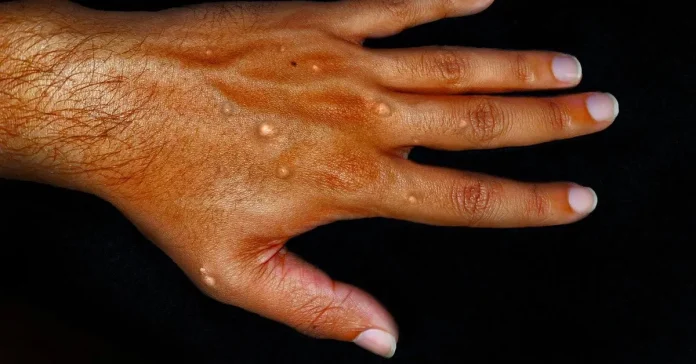Asian countries from China to Pakistan have stepped up surveillance of a mutated monkeypox virus that is spreading outside Central Africa, where the World Health Organisation declared a public health emergency this month.
A case in Sweden last week underlines the international threat posed by the so-called 1B strain, which has reportedly killed more than 500 people, mostly children, in the Democratic Republic of Congo. Across Asia, travellers arriving from countries affected by the virus are being asked to report symptoms and hospitals are stepping up surveillance for the disease.
Unlike the smallpox-causing virus, which spread worldwide in 2022, the new strain is more dangerous, with a mortality rate of more than 3 per cent. It is also possible that infected people can transmit the virus days before symptoms appear, making it more difficult to control the disease by identifying and isolating cases.
China is asking incoming travellers from affected countries and regions, those who have been in contact with smallpox patients, and those experiencing symptoms to report to customs officials upon entering the country, where they may be required to undergo testing, the statement said.
Health authorities in India have ordered increased vigilance at international airports and ports for passengers with smallpox symptoms, and have designated hospitals and laboratories to deal with potential patients, the Economic Times reported. Indonesia and Malaysia have also taken similar measures.
While smallpox is back in the spotlight, health officials are reporting cases probably caused by the milder strain 2b. A case of infection with strain 2b was confirmed in Pakistan on 13 August. The Philippine Department of Health said it had identified the first case of smallpox in the country since December in a 33-year-old man who had not travelled recently. The strain that caused the disease is not yet known.
A 2022 UK study found that more than half of mpox cases were spread by infected people who had not yet developed symptoms. Emerging evidence suggests that people incubating the disease can transmit the smallpox virus for up to four days before symptoms appear.
Luxembourg’s health minister said last Friday that the risk of the Luxembourg population contracting smallpox is “low.”
WHO recommends special measures to control monkeypox outbreak
The World Health Organisation is recommending special measures to control the outbreak of mpox, also known as monkeypox, in five African countries – the Democratic Republic of Congo, Burundi, Kenya, Rwanda and Uganda.
According to WHO recommendations, states should strengthen national health emergency response mechanisms, improve coordination of mpox control efforts, improve laboratory diagnosis of the disease, and identify contacts of mpox-infected people with others. In addition, WHO is calling for increased border surveillance to identify those who have become ill, vaccination and better public awareness of the disease and control measures.
The African Union Health Service declared a public health emergency on the continent due to the spread of monkeypox on 13 August. The disease has been detected in 17 African countries, totalling more than 38,000 infections and more than 1,400 deaths. The epicentre of the outbreak has been the eastern Democratic Republic of Congo, where 92% of African cases have been reported.
